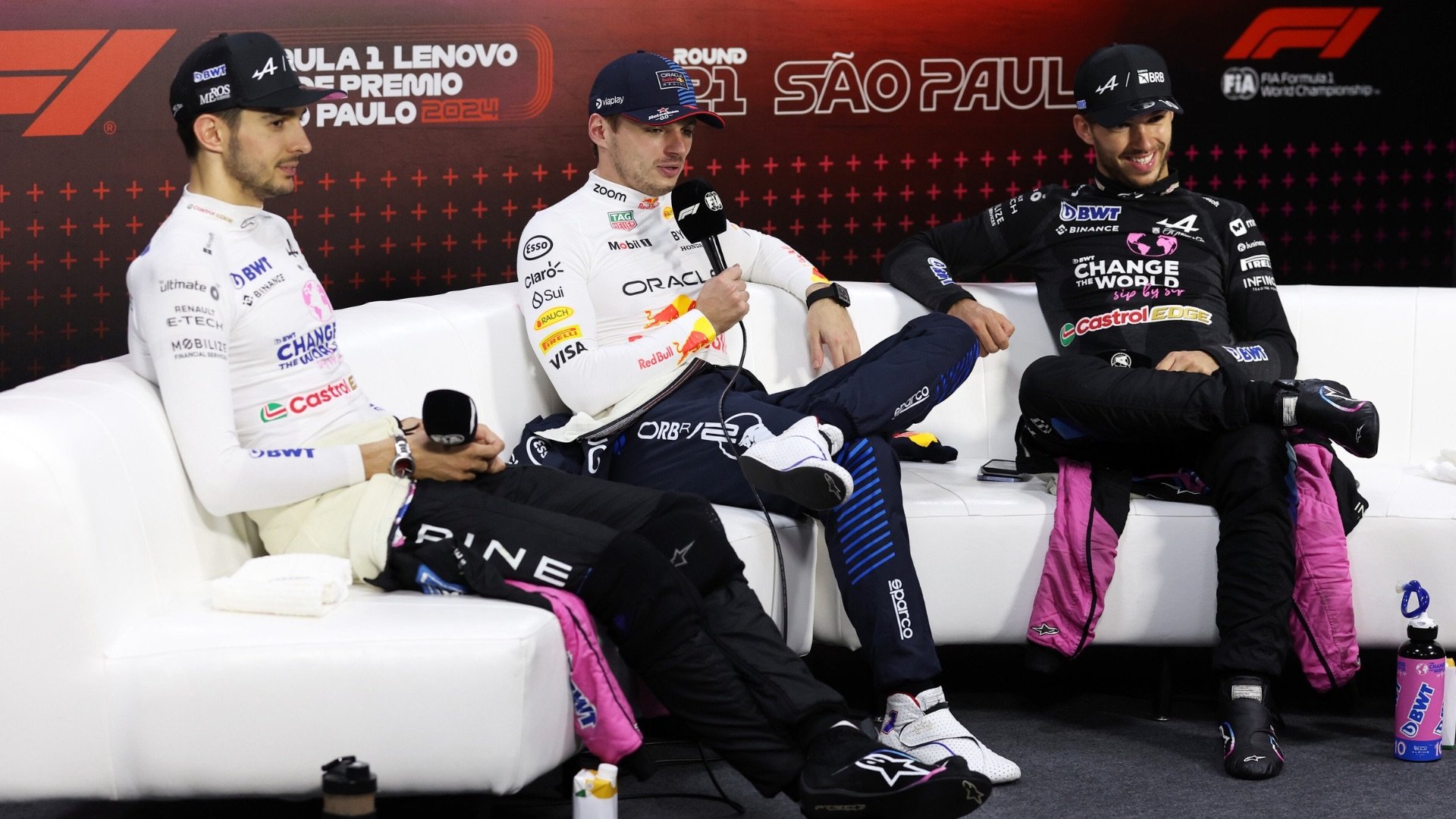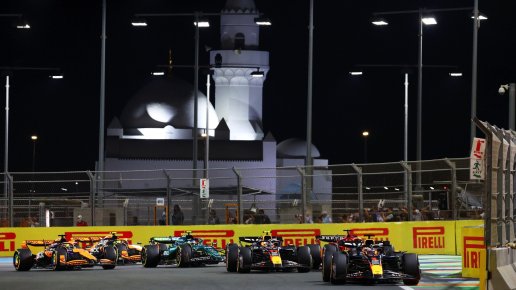
Photo: Getty Images / Red Bull Content Pool
Is FIA taking it too far with the swearing ban in F1?
The FIA is bringing in stricter rules on swearing for 2025, but is it really necessary? Should drivers be punished for showing emotion?
F1 & MotoGP news to your inbox every day.
The FIA’s decision to introduce stricter rules on swearing for the 2025 season has stirred up a lot of debate. Under the new regulations, drivers could face suspensions, fines, or even points deductions if they use offensive language or gestures during official FIA events, press conferences, and podium celebrations.
While some see this as a positive step towards maintaining professionalism in the sport, others believe it’s an unnecessary crackdown on natural emotions. So what is actually the case?
This big drama began last season with Max Verstappen’s swearing during the Singapore Grand Prix press conference. Frustrated with a question about Red Bull’s struggles that weekend, he responded with some strong language relating to the car’s performance.
Despite not talking about a person but a thing, FIA president Mohammed Ben Sulayem wasn’t happy about the situation, saying that F1 drivers are not “rappers” and highlighted that they should be role models for children. His argument is that, as public figures, drivers have a responsibility to set a good example, especially as the sport reaches an ever-growing global audience that includes young fans.
In many ways, the new rules bring F1 in line with other sports. Footballers can get booked for dissent, tennis players are fined for bad language, and even in American motorsport series like NASCAR, drivers can be penalised for inappropriate behaviour.
In this sense, it’s not unreasonable for F1 to enforce some level of conduct, particularly when live broadcasts make it hard to filter out strong language. It also helps sponsors and broadcasters, who often have strict content guidelines to follow.
But not everyone is convinced that this is the right way forward. Formula 1 is a sport built on passion, and part of what makes it so engaging is seeing raw, unfiltered emotion from drivers. Whether it’s a furious outburst after being taken out of a race or a relieved reaction to a hard-fought victory, those moments make the sport feel real. Many fans love the intensity of the team radio messages, and adding more restrictions could take away some of that authenticity.
There’s also the question of how these rules will be enforced. Will the FIA punish every slip of the tongue, even in the heat of the moment? Will all languages be treated equally? And with so many other pressing issues in the sport, such as inconsistent stewarding decisions and safety improvements, some feel that the FIA should be focusing on more important matters rather than worrying about whether a driver swears after crashing out.
A common-sense approach is needed. It makes sense to discourage excessive or offensive language, particularly in public interviews or podium moments, but the FIA must be careful not to go too far. Drivers are human, and expecting them to always be perfectly composed, especially in the most intense moments, is unrealistic.
At the end of the day, the FIA’s goal of making the sport more professional is understandable, but they must ensure they don’t take away the passion and emotion that make Formula 1 so exciting. If F1 becomes too controlled and scripted, it risks losing the very thing that makes it special.






